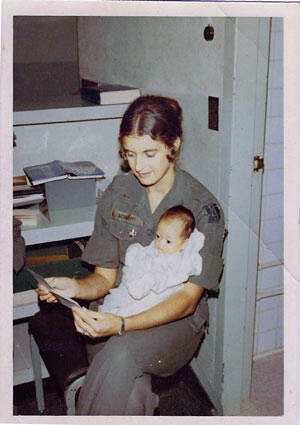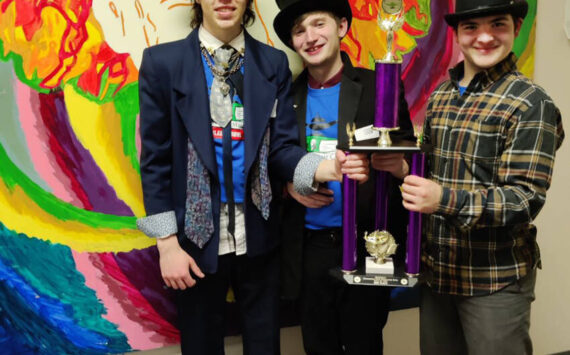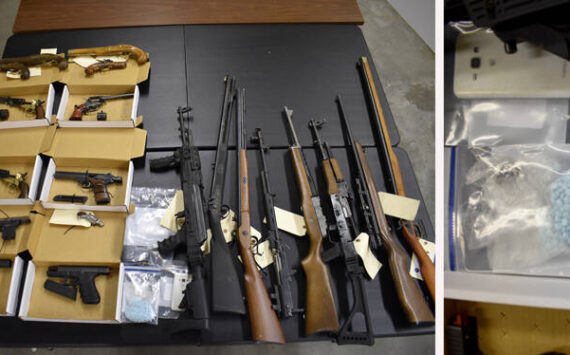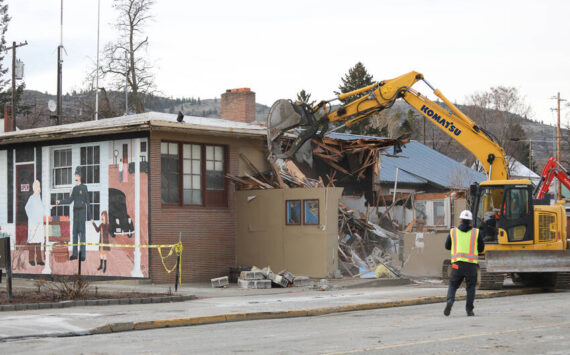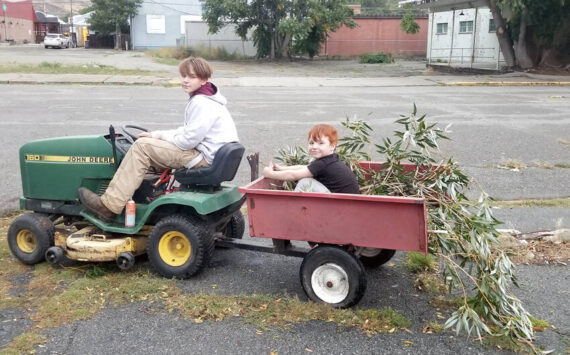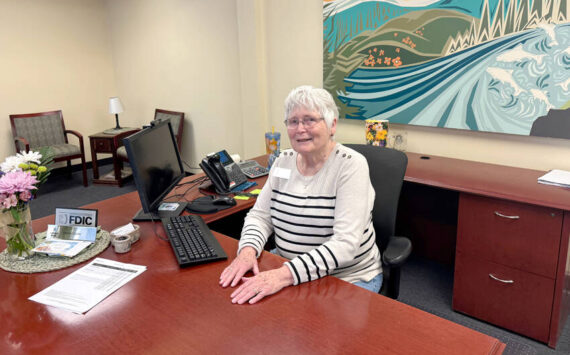TONASKET- In the tumultuous era of the Vietnam War, thousands of brave men and women served their country with courage and commitment. Among them was Lieutenant Karen Schimpf, an Army nurse who provided medical care and brought hope to countless soldiers and children in need. This is her story.
The Vietnam War marked a pivotal moment in history, with complexities far beyond the battlefield. Among the crucial forces were army nurses, who played essential roles in saving lives and offering comfort. Lieutenant Schimpf, served in Vietnam from 1971 to 1972, before that she worked at Madigan Army Medical Center in Washington.
As a young woman, attending a small women’s college in upstate New York, Schimpf was inspired to enlist in the Army.
“The recruiters came in and I knew my parents were paying for three kids all at once for school, so I just took the bait,” said Schimpf.
War left an incredible impact on Lt. Schimpf, the most challenging being “what happened to little kids during war? Seeing them injured and sick from war.”
According to Schimpf, when she arrived in Vietnam, there was still a children’s ward and she had the opportunity to serve and care for the children.
“I worked in the children’s ward of the hospital until they didn’t have it anymore. For a while, before I left, they changed the mission of the hospital from general. There were only two hospitals left in Vietnam when I left,” said Schimpf.
Schimpf said when the mission of the hospital changed, they stopped taking care of the children and civilians.
“They couldn’t anymore,” she explained
Her duties included working on a medical ward and a surgical ward.
“We didn’t always stay in one place,” said Schimpf. A typical day of nursing could be very quiet or become very busy.
“When I first got there, the first child I saw was burned on 90 percent of her body with phosphorus. It doesn’t stop burning. She was three years old. That was the first thing I saw. Orphanages would bring us little babies that were sick. They couldn’t take care of them, and they knew we could take care of them. They knew we could give them the care that they needed. They brought us children they hoped we could save,” said Schimpf.
Amidst the chaos of war, Lt. Schimpf found a profound connection with a young Vietnamese girl and wanted to adopt her.
“She became a big part of my life. I was a single woman and at that time single women were not able to adopt children. She was adopted, but not by me. She is now in her fifties, lives in Nebraska, has two kids. She is a discharge planner at a big teaching hospital. She made it,” said Schimpf.
Schimpf said the experiences she had during her time of service changed her life immensely.
“It changed where I wanted to live, what I wanted to do, and where I had my family. Of course, that is why I chose here, instead of New York. I ended up at Fort Lewis and Madigan when I first enlisted in the Army and ended up liking this area. That changed me. The experience changed me. I learned more in the amount of time I was there than I have ever learned, about war and people,” said Schimpf.
Having been raised in a middle-class family from the United States, Schimpf said, “I was in a totally different country, different religion, than I was brought up with and it was totally different than anything I had ever experienced in my life. There I was, in the middle of war, taking care of very hungry or injured children, while caring for their parents as well. I found out that I really like the people of Vietnam, a whole lot.”
With all of her training, Schimpf did not feel prepared for the realities of war.
“Neither did the army prepare us for war. A lot of those that went there were just out-of-school nurses, like me,” said Schimpf.
During the Vietnam War, drug addiction became a significant issue among American soldiers, many of whom turned to substances like marijuana, heroin and opium as an escape from the intense stress and trauma of combat.
According to the U.S. Department of Defense website, approximately 42 percent of U.S. military personnel in Vietnam in 1971 had used opioids at least once, and half of these individuals were reported to be physically dependent at some time.
“We had to keep these guys that were going home, who were done with their service, locked up, until they were free of drugs. We had to lock them up, and I had to keep the key and that was something I never wanted to do. Nobody that was there should have had to do that, ever,” said Schimpf.
Schimpf said she became good friends with many of her fellow nurses.
“My best friend that I had there ended up marrying a friend that I knew in New York. We became very close and stayed close our whole lives. She died last year,” said Schimpf.
She and husband, Michael Stewart, will be visiting Vietnam later this month. She has visited seven times, since 2011.
“We go to Cambodia and Vietnam. When you sign up for a tour, sometimes you will end up with wonderful guides. We have ended up with two wonderful guides in each country and they have become our family,” said Schimpf.
When asked what advice she would give young people considering enlisting in the US Armed Forces, Schimpf said, “They will learn a hell of a lot, but they should be careful what they volunteer for. Be aware that you will sign your name on the dotted line and you take an oath. The oath is very important. So, if you’re going to take an oath and sign on a dotted line, know what you’re signing up for. If you volunteer, you will go wherever they send you. Be ready for that.
“It could be the best experience of your life and you’ll probably learn more doing it than anywhere else you can go. Americans are very comfortable. They are basically very well taken care of, either by their parents, their families, or the government. American kids, if they don’t go somewhere or do something out of their own way, may never really get to see beyond themselves. The military is one way to do that.”
For Schimpf, Veteran’s Day is a time of remembrance of those who have served and who sacrificed their lives.
“Through their oath, they are taking care of their country, no matter what they end up doing, but they have taken that oath saying that they will and will honor the constitution. It’s huge when you take that oath.”
“Freedom is a responsibility,” said Schimpf.
